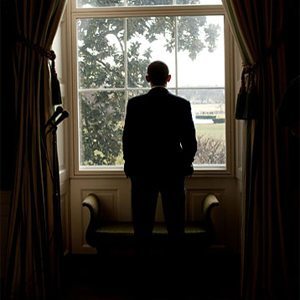Iran deal opens Pandora’s box for America
The sham conviction of an American hostage in Iran, Tehran’s new testing of long-range missiles and Russian military action in Syria are all negative consequences of the U.S. joining the nuclear deal struck in July, according to Middle East and terrorism expert Walid Phares.
The latest bombshell is Iran’s announcement that a court there has convicted Washington Post reporter Jason Rezaian. The statement did not mention which charge or charges were ruled upon, offer any evidence of guilt or mention how much more time Rezaian would spend in a brutal Iranian prison.
Phares is convinced the conviction is part of Iran’s strategy to demand future concessions from the United States.
“It’s always to seek a trade, to seek an exchange. They do have some demands that we’re not aware of with regard to the United States and maybe some allied countries that they need to exchange Mr. Rezaian with these other persons,” said Phares, who is an adviser to Congress on the Middle East and terrorism. He is the author most recently of “The Lost Spring.”
Phares said Iran has a long history of using hostages to get what it wants.
“The Iranian regime, since its inception in 1979 with the first hostage crisis in Tehran and again in Beirut with the Hezbollah hostage crisis, has made it very clear in their policies. They will use hostages on major issues, not on minor issues. Now we’re experiencing this for the third time in three decades,” Phares said.
In addition to the quest for a nuclear deal with Iran, the Obama administration claimed the deal would bring Iran closer to the community of responsible nations. Phares said by giving Iran everything it wanted in the deal, it only ratcheted up the ambitions of the mullahs.
“The Iran regime for many years has showed that once they obtain what they want from the United States, then they’ll move to the second stage, which is to obtain more,” Phares said. “I have been monitoring the Iranian regime’s behavior for the last 30 years, since my days in Beirut and again after the Cold War. It has a constant policy of using one stage to get to the next stage.”
And what does Iran want next?
Read More: Iran deal opens Pandora’s box for America

